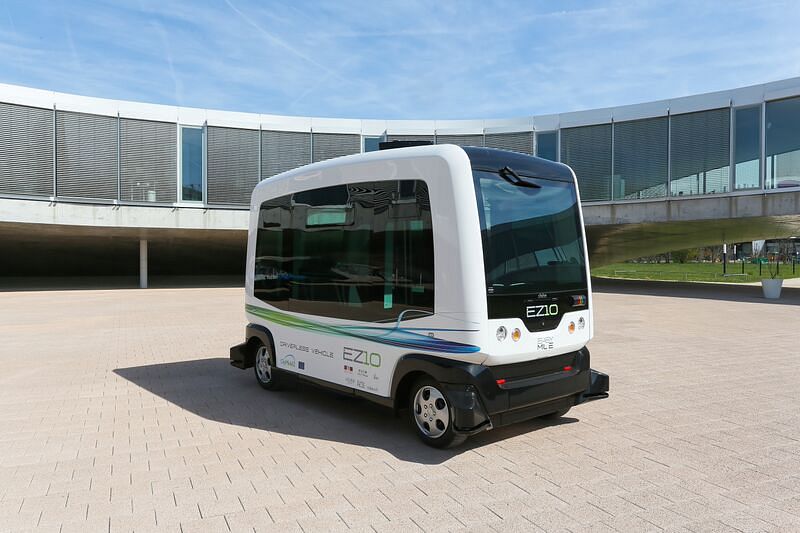The Netherlands could soon see small self-driving buses gracing Dutch roads, thanks to a project called ‘WEpods’. The project is the joint effort of the province of Gelderland, Wageningen University & Research Centre and TU Delft, and there are hopes that the six person automated vehicle will be permitted to drive on Dutch roads.
WEpod will develop two vehicles, which will travel the 11km between Wageningen University campus and Ede. The intention is to develop an app in conjunction with the vehicle, allowing users to book a seat and offering information about the environment and the WEpods themselves. TU Delft’s involvement in WEpod is coordinated by Riender Happee, with a mixture of students, professors and researchers from both the Civil Engineering and Geosciences (CiTG) and Mechanical, Maritime and Materials Engineering (3ME) departments involved in the technology’s development. The concept of a ‘self-driving’ vehicle isn’t unique, however what is unique is that the WEpods are completely autonomous and have the potential to adapt or even completely change their route. Dr. Goncalo Homem de Almeida Correia, an assistant professor in the CiTG department at TU Delft who helps coordinate the project, explained to Delta that while most automated vehicles use rails, magnets or special lanes the WEpods will be autonomous “using their own ‘sight’ capabilities and a very good knowledge of the environment in which they move.”
The vehicle being used for the project is called the EZ-10, two of which were delivered to the Netherlands in July of this year. They will be equipped with additional features such as GPS, lasers, cameras and a radar. The GPS positioning is being organized by the TU Delft department of Geoscience and Remote Sensing while the Robot Vision group from the 3ME department is working on the environment sensing technology for the vehicles.CiTG looks at the safety of the Ede to Wageningen route.
WEpod hopes that the vehicle, which reaches top speeds of 25 km per hour, will be allowed to drive on Dutch roads. According to Dr. Correia they are continuing to assess the safety of the pilot project. He added that these automated shuttle-buses, the first of their kind in the Netherlands, are not an isolated pilot but are just part of “the start of a paradigm shift of operating transit systems.” If it goes well, hopefully we can look forward to fully automated mass transit becoming a fixture.
WEpod will start testing their shuttle-buses this November.



Comments are closed.